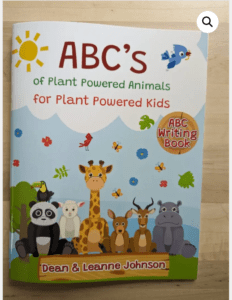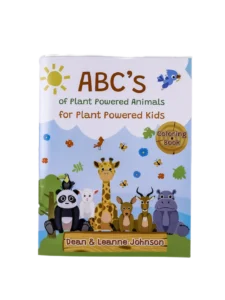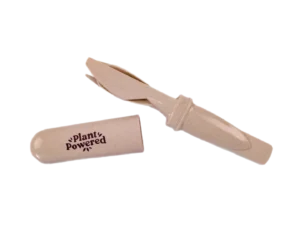Considerations for Mothers and Infants when Transitioning From Breast Milk to a Plant-Based Milk.
In a study by Mangals and Messina (2001) (1) they investigated 400 infants to determine whether vegan mothers and their infants were at risk for low birth weights, and whether a vegan diet during pregnancy contributed to low birth weight. The study found that 75% of mothers followed a vegan diet during their pregnancy and that there was no difference in incidence of low birth weight between vegan and non-vegan infants. Additionally, vegan mothers reported a lower maternal weight gain than non-vegan mothers, and still the birth weights of vegan infants were within the healthy range seen in the non-vegan infants. Finally, the infants who were fed breast milk vegan or not thrived in the first 6 months of early infancy, indicating that both vegan mothers and their infants thrived on a vegan diet. Additionally the breast milk from a vegan mother reported lower environmental pollutants in the form of synthetic insecticides, pesticides, and man-made chemical compounds; even those that have been banned for a number of years, such as DDT. At worst a vegan mothers breast milk was still 1 to 2% lower than mothers from the general population. However, the report presented that vegan mothers breast milk was lower in DHA, the omega-3 fatty acid associated with growth and functional development; that said, DHA levels in vegan mothers were still higher than those infants that received commercial infant formula. A simple and effective method to increase DHA levels in breast feeding vegan mothers is through supplementation; the Vegan and Breastfeeding (2022) (4) site has an informative article on this exact topic. On the topic of commercial infant formulas, studies report that soy-based infant formulas when compared to cow’s milk-based formula are considerably higher in isoflavones, in the vegan infants; isoflavones is an organic antioxidant that promotes long term resistance against hormone dependent diseases as we age. A study by Setchell el.al (1998) (3), explores the soy-based infant formulas more comprehensively.
As your infant progresses towards their first birthday, some parents begin to consider switching to one of the many milks now available; Mangels and Messina (2001) (2), suggests waiting until at least the end of the first year to make this decision. For example soy-based milk; the recommendation is not to introduce before the first year is due to its lack of bioavailable, meaning what the human body can readily use of iron and zinc; similarly this is not a factor that just affects plant-based milks, cow’s milk also has low levels of zinc; besides taking the milk from a mother cow, meant for her calf is unethical and cruel. In addition, table foods including soy based (think tofu etc) foods, on top of beans, grains, fruits, and vegetables can be introduced to contribute to the iron and zinc infants require. Lastly on the topic of soy milk and the beliefs it is inferior to cow’s milk; full fat soy milk is comparable to 2% cow’s milk, with regards to fat content.
In summary Mangels and Messina (2001) (2) and the American Academy of Pediatrics (AAP) advocate for mothers to breastfeed for the first 12 months due to the numerous advantages for mother and infant, (AAP, 2002) (1); also noted was vegan mothers preferred to continue breastfeeding after 12 months, a practice to support to the fullest. When the migration to a plant-based milk begins it is recommended to avoid low or reduced fat milks, along with rice milk due to their low caloric density and protein quantity. Additionally, it is suggested to avoid flavored varieties of milk as they tend to be sweetened, something to avoid for children of this young age. Essentially researchers concluded that vegan infants are at no more risk of nutrient deficiencies, compared to their omnivore counterparts. Breastfed infants can be sustained with a vegan mothers breast milk, with the only recommendation coming in the form of B12 supplementation to support growth and development.
Look out for our next article covering the transition to plant-based/vegan solid food for your toddler, and how to ensure they receive all the nutrients, vitamins and minerals to keep their growth and development on track.
We hope you find this information helpful.
Stay Rooted!
Plant Powered Playhouse
References
- American Academy of Pediatrics. (2002, June 27). American Academy of Pediatrics calls for more support for breastfeeding mothers within updated policy recommendations. Retrieved April 4, 2023, from American Academy of Pediatrics Calls for More Support for Breastfeeding Mothers Within Updated Policy Recommendations
- Mangels, A. R., & Messina, V. (2001). Considerations in planning vegan diets: Infants. Journal of the American Dietetic Association, 101(6), 670-677. https://doi.org/10.1016/s0002-8223(01)00169-9
- Setchell, K. D., Zimmer-Nechemias, L., Cai, J., & Heubi, J. E. (1998). Isoflavone content of infant formulas and the metabolic fate of these phytoestrogens in early life. The American journal of clinical nutrition, 68(6 Suppl), 1453S–1461S. https://doi.org/10.1093/ajcn/68.6.1453S
- Vegan Pregnancy and Breastfeeding. (2022, January 28). Vegan omega-3 breastfeeding (we made it easy!). Vegan Pregnancy and Breastfeeding – Pregnant vegans, vegan parents-to-be and vegan breast/chest feeders – This site is all for you! Be your best pregnant vegan self!. Retrieved April 5, 2023, from Vegan Omega-3 breastfeeding (we made it easy!)












